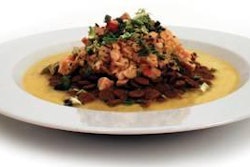Obesity is thought to affect quality of life, but limited objective data exist to support this supposition. The study used a questionnaire to determine health-related quality of life (HRQOL) before and after weight loss in 50 obese client-owned dogs representing a variety of breeds and genders.
Prior to weight loss, owners were asked to complete a validated standardized questionnaire to determine HRQOL. Thirty dogs successfully completed their weight loss program; owners then completed a follow-up questionnaire. The responses were transformed to scores corresponding to each of four factors (vitality, emotional disturbance, anxiety and pain) and scored on a scale of 0–6. Changes in the scores were used to explore the sensitivity of the questionnaire, and scores were correlated with responses to direct questions about quality of life and pain, as well as weight loss.
Dogs that failed to complete their weight loss program had lower vitality and higher emotional disturbance scores than those successfully losing weight. In the 30 dogs that completed, weight loss led to an increased vitality score and decreased scores for both emotional disturbance and pain. However, there was no change in anxiety. The change in vitality score was positively associated with percentage weight loss and percentage body fat loss.
These results indicate demonstrable improvement in HRQOL for obese dogs that successfully lose weight.
Source : A.J. German et al., 2012. Quality of life is reduced in obese dogs but improves after successful weight loss. Vet J 192: 428–434. doi: 10.1016/j.tvjl.2011.09.015

















